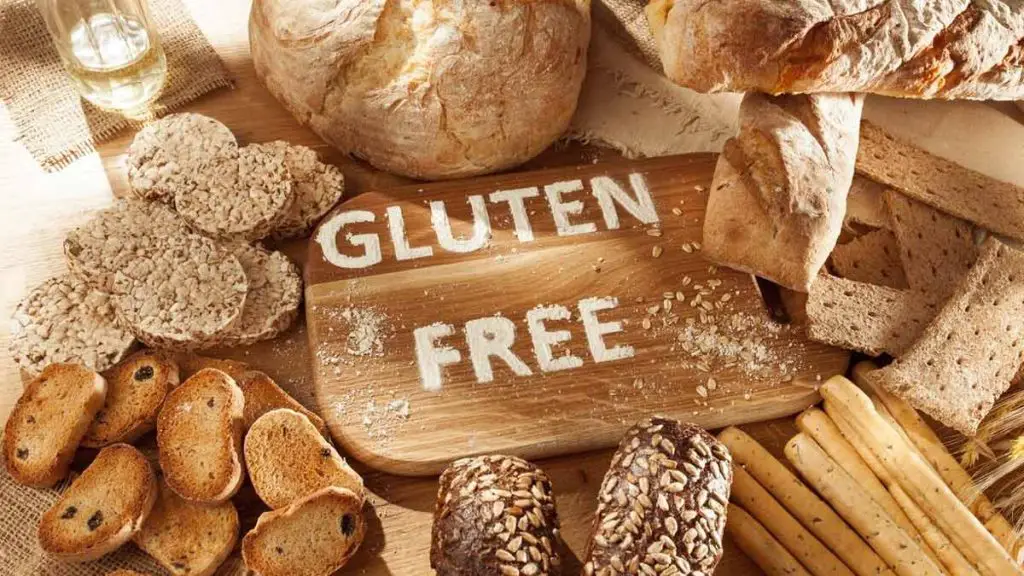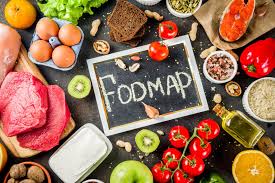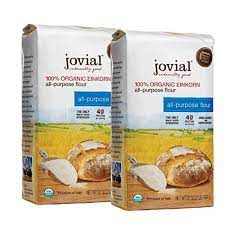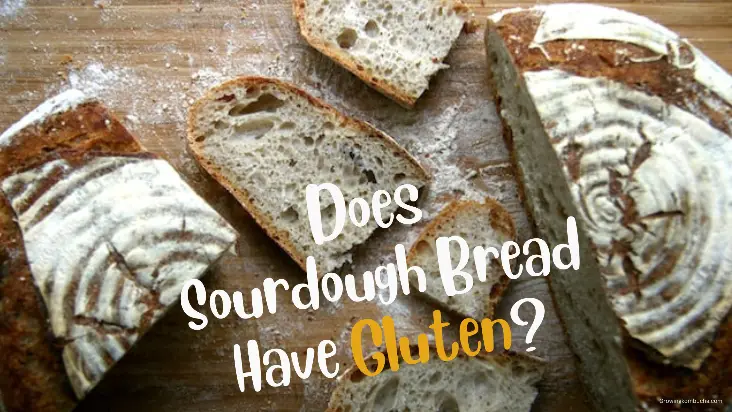Having food intolerances is a different kind of struggle. Patients only have limited options that are very hard to source and not widely available. Recently, sourdough sparked hope and challenged gluten-related communities with some positive responses from several human trials. So, the big question is, does sourdough bread have gluten?
Is sourdough a game changer or just another hoax that preys on desperate consumers?
In this post, we’ll share how patients with gluten-related disorders approach sourdough, supported by some studies, and what to keep in mind if they are considering trying it on their own.
The perils of gluten intolerance
The rising number of people developing food allergies and intolerances is becoming a concern across the globe. According to a study, 5% of the population suffers from gluten-related disorders which involve gastrointestinal discomfort when ingesting gluten from wheat, barley, and rye.
Gluten in itself is not bad, according to Dr. Selvi Rajagopal from John Hopkins Medicine. It is simply a protein found in almost all types of food from bread and pasta to nutritional supplements.
When ingested, our body will try to break down gluten through the enzyme protease. However, it cannot completely process gluten which allows it to pass through the small intestine.
People with a healthy digestive system can handle undigested gluten without any problems. However, some people have issues with intestinal lining or gut permeability which leads to inflammation. In some cases, it can even lead to auto-immune responses called celiac disease.

Many medical professionals see that the processed or refined food that we enjoy today contains wheat that has been stripped down from its nutritious version. So, it’s highly likely to cause inflammation in patients diagnosed with gluten sensitivity and even those who are unaware that they have it.
As fermentation made its comeback in the past years, a lot of people are looking for healthier alternatives to manage and cure conditions naturally. One of which is sourdough, which is an ancient fermented bread that is processed through long periods of fermentation and utilizes wild yeasts instead of baker’s yeast.
However, there’s a conflicting body of information about sourdough and its impact on gluten-sensitive individuals.
Q: Does sourdough bread have gluten?
A: Sourdough is only low in gluten but not totally gluten-free. It is deemed a potential option for gluten-sensitive individuals because it doesn’t cause the usual symptoms that patients experience when eating bread. The good response is all thanks to the long fermentation process of making sourdough.
Through the long hours of fermentation in making sourdough, gluten and carbs are immensely broken down. This allows the final bread to be low in gluten and sugar while enhancing the vitamins and minerals from the raw materials. Simply put, the fermentation pre-digests the sourdough even before it lands in your mouth.
Is sourdough the game changer in the gluten-free diet?

The popularity of sourdough and its potential in breaking the gluten-free diet has been a ray of hope to many patients. Most patients with non-autoimmune gluten sensitivity have a higher tolerance to sourdough but not everyone can experience the same. Sourdough consumption affects Two types of gluten intolerance differently
Gluten-related disorders are divided into two types: non-autoimmune and autoimmune. Gluten intolerance like irritable bowel syndrome (IBS) belongs to non-autoimmune disorders. On the other hand, celiac disease is an autoimmune disorder that can cause severe symptoms.
According to Dr. Joseph Murray from Mayo Clinic, it is not absolutely safe for celiac disease patients to consume sourdough, but it has the potential to become a breakthrough in the coming years. Celiac disease experts and most celiac disease patients don’t fully embrace sourdough as a low-gluten food option due to the fear of adverse effects. The doubt contributes to three factors:
- Uniformity of contents per baked batch.
- Varying gluten sensitivity of each patient.
- Gluten content in raw materials used.
After all, there are still a lot of untapped areas about gluten sensitivity. Though sourdough is not yet thoroughly recommended for gluten-intolerant patients, it’s best not to close the doors for its potential.
Here are some of the promising studies about sourdough that might change the whole gluten-free diet in the coming years:
#1 Study on Celiac sprue patients
In a joint research published in the February issue of Applied and Environmental Microbiology, researchers from the University of Bari, the University of Naples, and the University College Cork found that 13 out of 17 celiac sprue patients had a very mild reaction to sourdough with lab results that is not too far from their bodily reaction before the test.
The remaining four patients did not show any response from the sourdough at all. The study used selected strains of lactobacilli and non-toxic wheat flour as a control for the experiment and fermented the bread for 24 hours.
From the results, they concluded that controlled use of raw materials and selection of specific lactobacilli strains can be a promising option to increase the gluten tolerance of celiac sprue patients.
#2 A promising study in volunteer celiac patients
A small study in Italy participated by volunteer celiac patients found that 5 out of 6 celiac patients has no symptoms or flare-ups from sourdough made from hydrolyzed wheat flour, and sourdough lactobacilli with a gluten content of 8ppm. Meanwhile, two out of 6 volunteers opt out of the challenge when they developed symptoms after eating natural flour baked goods.
#3 Don’t blame gluten for what FODMAP did

Most people who have food intolerance always blame gluten. However, doctors have been skeptical about people who claim they have gluten sensitivity or celiac disease. Several studies found that gluten is not always the problem.
According to a study, several purported gluten-sensitive individuals are given two sets of food: gluten-free/FODMAP-free and food with gluten but without FODMAP. The results show that the same people who claim that they are gluten sensitive have no symptoms when they consumed food with gluten without traces of FODMAP.
Sometimes, the inflammatory symptoms are triggered by other types of indigestible carbohydrates in bread that are causing the problem, such as:
- Fructans.
- Oligosaccharides.
- Other compounds in foods.
The fermentation process in making sourdough not only lowers gluten and sugar but also decreases traces of fructan. Fructan is a dominant FODMAP carbohydrate in wheat products. They are too small and can easily colonize the gut, causing some adverse effects on patients with digestive conditions like IBS.
Is sourdough safe for celiac and gluten-intolerant patients?
Though it’s really exciting to know that the re-discovery of sourdough can break the gluten-free diet, the results may vary for every person. As of the moment, the best answer if sourdough is safe for digestive issues and autoimmune disorders is a big maybe. Just because there are studies already conducted on the matter, doesn’t signify a green light.
What’s the caveat?: Risks in eating sourdough for patients with food intolerances
If you have gluten intolerance or a celiac disease patient, it’s best to check and consider the advice of your doctor first. The risks of having symptoms can be deadly, so it’s best to adhere to these precautions:
- Learn to check the labels: Food manufacturers can be drawn to make gluten-free sourdough options based on a single medical study. They may pose marketing materials based on that study and use misleading advertisements.
- Ferment longer and use non-toxic materials: Most food-intolerant patients who dipped their toes in trying sourdough used specific flour like Einkorn flour and longer fermentation procedures. Most of them recommend fermenting the sourdough overnight to fully break down all the gluten and FODMAPs in the bread. However, you should expect that there will be a bit of adjustment in the taste because of the prolonged fermentation.

- Start with sprouted bread then slowly transition to sourdough: Most patients accurately diagnosed with gluten intolerance have a positive response to sprouted bread. If you are one of them, you may start slowly transitioning to long-fermented sourdough gradually. Slowly introduce it to your system regardless if you have no symptoms. The good thing with intolerance is the body can pick up as long as the increase in consumption is gradually done and eaten with precaution.
- Seek the advice of your doctor and join gluten-related communities for support: Understanding your body can be overwhelming. Accepting its limits and being patient with it requires a different kind of support from professionals and people who understand gluten intolerance best. Surround yourself with people who will support your efforts in improving your gluten tolerance and will be there for you in case things don’t go as intended.
The renewed interest in sourdough
You’re probably wondering what makes sourdough so special that most people nowadays are raving about it. Sourdough is the oldest form of bread that ever existed. It is done using the simplest ingredients but done in a 7 to 12-hour-long fermentation process using wild yeasts in the air.
Since it doesn’t involve any chemicals and other mechanical processes, sourdough retains the nutrients from whole wheat flour. It also contains a lower glycemic index which is 54 calories compared to 71 calories in white bread. Sourdough is easier to digest and contains a lot of fiber, which is good for your digestion.

With all the health benefits of sourdough, it’s no wonder why people are deviating back to this ancient bread. It even became more prevalent during the global health emergency due to COVID-19. As more people become enlightened about the toxicity of processed foods, the fermentation of vegetables, pastries, and drinks will continue to rise.
The ancient art of sourdough making vs. new bread production
The difference between the baker’s yeast we have today and the wild yeats in sourdough is the secret in sourdough’s nutritious content. According to the University of Rochester, most commercial baker’s yeast is manufactured by companies that aim to shorten the baking process. Examples of this are:
- Active dry yeast.
- Rapid-rise yeast.
- Instant yeast.
Though these strains of yeast are safe for human consumption, they are the domesticated form of wild yeast. The intention behind the manufacturing of these yeasts is to achieve a more predictable result in flavor, form, and length of fermentation duration.
Sourdough is made using Lacto-fermentation, which uses lactobacillus strains that produce lactic acid. Lactic acid contains different varieties of good bacteria and one of them is the strongest one called lactobacillus Plantarum.
L. Plantarum can withstand our strong stomach acids and reach the intestines to colonize and fight against pathogens. It is the most abundant genome in lactic acid and among the strongest soldiers against disease-causing bacteria in our gut.
Frequently Asked Questions (FAQs)
Does sourdough bread have less gluten than regular bread?
Sourdough bread has lower gluten content due to its long fermentation process. However, not all sourdough bread have the same gluten levels. That’s why celiac disease and gluten-intolerant patients should not consume commercially-available sourdough without extensive precaution.
How much gluten is in sourdough?
Every sourdough bread has a varying gluten content and can only be securely considered gluten-free if tested in the lab. The amount of gluten in sourdough highly depends on the materials used and the length of fermentation.
Are gluten and yeast the same thing?
Gluten is a protein and yeast is a type of probiotic or good strain of bacteria. Yeast is responsible for converting sugar in wheat into acid, releasing carbon dioxide in the process. With the increase in temperature during baking, the yeast releases pockets of air which makes the bread rise.
How long does it take the sourdough to break down the gluten?
Ideally, you should ferment your sourdough for 12 to 24 hours to achieve the lowest gluten content. Aside from fermentation duration, you should also consider using raw materials that are inherently lower in gluten.
